- Home
- Ben Counter
The Victim's Dance
The Victim's Dance Read online
The Victim’s Dance
Ben Counter
It was by the shell of Phalakan Academy’s debating hall that the pack got their first sight of their quarry. The aliens wore outlandish colours that shifted and bled into one another, infuriating eyes that refused to focus on them. They moved with flips and pirouettes, always dancing, even as the picked their way across the cratered courtyard and into the cover of the shattered hall.
‘How many do you count?’ asked Pack Leader Hengild.
Brother Tanngjost, the squad’s veteran, squinted through the magnocular he held to his eye. The five members of the Space Wolves pack, along with Rune Priest Ulli Iceclaw, had taken up a position downwind of the aliens. Among the orreries and star maps of the academy’s observatory they had a good view of the likely angles of approach.
‘Tough to tell,’ replied Tanngjost. ‘The xenos keep dancing around. How is that any way to fight a war?’
‘Best guess, Tanngjost,’ said Hengild. Where the pack might squabble and banter, Hengild was always curt and to the point.
‘No more than ten,’ replied Tanngjost.
‘Less than two each,’ said Brother Saerhimnar with mock sadness. ‘And there I was hoping this would be fun.’
‘One of them is a witch,’ said the Rune Priest. He was quiet and rarely spoke out, quite unlike the rest of Hengild’s pack, who would feast and revel in the Great Hall of the Fang until the Wolf Priests had to stop them brawling.
‘Can you be sure?’ asked Hengild.
‘I can smell it,’ said Ulli, which to a Space Wolf meant certainty.
‘You may have to deal with that then, Rune Priest,’ said Hengild. ‘We can move through the southern cloister and hit them before they have a bearing on this place. We have scouted it first and know the ground, and they do not. Let us turn that advantage into a heap of alien dead. Pack Hengild, are you for the hunt?’
‘I never knew a day when I was not!’ replied Brother Forgan, who carried the pack’s heavy bolter. His head had been left hairless and scorched by an eldar plasma grenade during the Phalakan campaign’s first exchanges.
‘Then, Forgan, take to the roof of the south cloister. The rest, with me. We will show them what happens when warriors fight dancers!’
The debating hall had once been a dome of stone and hardwood, but now it had a huge bite mark torn out of its roof. The faces of this world’s demagogues and politicians looked down at the speaker’s podium and the two hundred other statues that filled the debating floor, arranged as if listening intently. The students who had learned the way of Phalakan’s politics here had been expected to speak with passion even when the only ears listening were carved from stone.
Tanngjost prowled forward, his bolter, Frejya, in one hand, combat knife in the other. The alien stink was overpowering here, a heavy sour perfume that reeked of arrogance and inhumanity. It was the stench of the eldar. Tanngjost knew it well.
The pack circled into position to pounce. The eldar troupe processed in a circle around the centre podium. The troupe’s leader observed the ritual through a featureless faceplate without eyepieces. The rest of the alien was hidden in a hooded cloak coloured with checks of purple, white and yellow, and it held a tall, thin spear of silver. It was the witch, the one Ulli had sniffed out from across the academy.
‘Go for the throat,’ voxed Pack Leader Hengild.
Tanngjost leapt from cover. The closest alien wore yellow and red that rippled around its body as it moved. Beneath the shimmer was the hint of slender limbs and lean muscle, and a face mask the colour of bone. On the back of one hand was a stabbing weapon that ended in a sharpened tube, more of an oversized syringe than a blade.
Tanngjost’s combat knife stabbed down, aiming at the joint of neck and shoulder where a good thrust could plunge the blade down through bone, muscle, lung and heart.
The knife passed through nothing. The alien’s body was not where it should have been, its outline refracted and broken up by the field of shimmering colour around it.
Tanngjost landed and crouched, ready to drive his blade upwards. But the eldar flipped over his head, an impossible leap. His instinct told him that stabbing weapon would be aimed at his back and he spun, catching the outthrust arm of the eldar in the elbow of his bolter arm.
The eldar weapon spat an expanding spiral of silver wire. Where the filaments touched Tanngjost’s face he felt thin coils of pain. It was monomolecular, as thin as the edge of Tanngjost’s own knife. Adrenaline hammered through his twin hearts and kept the pain from compromising his body, but he knew when this fight was done it would hit him hard.
If he survived. The eldar was quicker than him, and through the storm of colour he could not make out any body parts to strike at.
Across the debating hall, the rest of the pack had leapt in for the kill. The eldar had been ready for them, reacting with a speed that even a Space Marine could not match. One had sliced off Brother Vinnjar’s hand with a long curved sword the colour of molten silver. Another had pirouetted out of Hengild’s way and sent the pack leader crashing into a statue to sprawl on the ground in a mass of shattered stone limbs.
The leader, the witch, rose off the floor, arms outstretched. Darkness and light flickered around it. Rune Priest Ulli ran at it, the sigils on his rune axe glowing white hot. The witch’s spear caught fire and the alien spun it in an arc. The attack was a feint – the witch made a gesture and lifted Brother Gildas off his feet with psychic force.
The aliens were ready. And they were fast. Too fast.
The alien next to Tanngjost stabbed again – Tanngjost dodged to one side but the alien followed up with a crescent kick that caught him on the temple and sent him reeling. It was instinct, again, that made him bring Frejya up and spray a volley of shots on full-auto in the direction of the eldar. The alien spun and flipped out of the path of the bullets, and fragments of colour shattered in every direction. The shots had not hit, but Tanngjost had known they wouldn’t – they had bought him a moment when the eldar was evading the bolter shells and not trying to kill him.
At the centre of the hall, Brother Gildas was thrown down onto the upstretched arm of a statue with enough strength to force the stone hand through his lower back and out through his stomach. Gildas’s head flopped back, his spine ruptured.
Ulli jumped at the witch, his axe drawn back to decapitate. Crackling blue lightning flared around him as the witch tried to earth a bolt of psychic energy through the Rune Priest’s body. The psychic circuits of Ulli’s power armour glowed cherry red with heat as they absorbed the force and Ulli pushed it back with his own mind, a flaming shield of power flaring around his head.
The witch cracked Ulli in the side of the head with the butt of its spear. Ulli held his ground but the witch, floating a metre above him now, had him reeling.
Chains of fire slammed down from above. Brother Forgan’s heavy bolter blasted a volley of shots into the melee. The speed and fury of the Space Wolves assault had not won the fight in the first seconds, and now they needed covering fire to regroup.
One eldar was dead. Its body lay draped over a statue, the colour field around it flickering out to reveal a deep wound across its chest, cutting through the layers of multi-hued fabric. Tanngjost saw that its mask was featureless save for a single triangular eyepiece.
The eldar that Tanngjost had been fighting dived out of the way of a trio of shots that slammed into the statue beside it. Tanngjost felt the shrapnel pinging across his face and armour. He dived for Ulli, who was about to be transfixed to the floor by the witch’s spear. The pair of Space Wolves tumbled away from the witch as another volley of shots hammered down.
‘To the cloister!’ voxed Hengild. ‘Regroup and face them in the narrows! Go! Go!’
A good plan. The cloister was a passageway between the debating hall and the academy’s museum. In the narrow confines, bolter fire might trump the eldar’s acrobatics.
Tanngjost ran for the doorway, firing as he went. He knew he was unlikely to hit anything, but it was enough to keep the aliens somersaulting out of his line of fire while the Space Wolves broke off. In the bedlam he spotted Pack Leader Hengild engage with one of the eldar who dropped down in front of him, twin blades flashing.
The pack leader parried one blade, turned the other with his shoulder guard and thrust his chainsword through the alien’s throat. The eldar’s head came away as the chain-teeth chewed through clavicle and spine. Another eldar dropped behind the pack leader and plunged its stabbing weapon into Hengild’s back.
It was the same type of weapon that had almost killed Tanngjost, the one that fired a spray of monofilament wire. Hengild’s face went slack as the wire unravelled inside him, shredding his internal organs. Hengild dropped to his knees and his eyes filled up with blood.
‘Hengild is down,’ voxed Tanngjost as he ran. ‘Pack leader down.’
The survivors reached the doorway: Tanngjost and Rune Priest Ulli, Saerhimnar, and the wounded Vinnjar. Brother Forgan crashed down a stairway beyond, heavy bolter smoking in his hands.
The eldar did not follow. One of them propped Hengild’s corpse up against the central podium and, with a blade of humming crystal, cut through the seal that ran down the side of his breastplate. It took only a handful of seconds to pull the breastplate away and reveal Hengild’s chest, criss-crossed with surgical scars. The eldar had done this before.
The witch thrust his spear through Hengild’s chest. In response, the eldar danced and spun, a riot of colours surrounding the scene like a storm of stained glass.
‘Tanngjost?’ asked Vinnjar, who was leaning against the wall and holding the stump of his wrist to stem the bleeding.
Tanngjost was the most senior member of the squad now. It was his choice how they fought next. They could charge back in to recover their dead, and die themselves. It would be heroic, but the life of a Space Marine was not something to be wasted with a gesture.
‘Fall back to the arboretum,’ voxed Tanngjost. ‘Good order. Keep firing. We will be back for our brothers, and Fenris’s fury will come with us.’
The Phalakan Academy had once been the forge of a planet’s rulers, where the oligarchy had trained their offspring for politics, war and leadership. It had been a world of rigid social order where one’s status and responsibilities were determined by birth and changed only by rewards for great service or punishments for great crimes. For a world to have survived so long without its society collapsing was admirable, and the Imperium had taken many drafts of able Imperial Navy and Guard officers from its ruling classes.
The planet’s society had then decayed as quickly as unharvested fruit. Whole social strata became isolated and debased, with caste inbreeding resulting in mutants who had no place in any civilisation. Rebellion and discord ruled. Then the eldar had come for Phalakan, though for what reason, no Imperial mind could divine. It was possible the eldar had been involved in the world’s decline, but plenty of planets in the Imperium had managed such a fall on their own.
The Phalakan Academy stood as testament to the order and structure the planet’s society had once boasted. The oligarchs had preserved it as a symbol of their superiority and their right to rule. The eldar had bombed it from orbit in the battle’s early stages, striking against a symbol that might help unite the fractured society against the aliens. The arboretum had suffered more than most parts of the Academy complex. The glass domes and vaults had been shattered and the massive trunks of ancient trees torn down. The result was an ugly tangle where once there had been a beautiful artificial forest for relaxation and contemplation. It was difficult ground to fight over, as dense as a death world jungle, and perfect for Space Marines to defend.
‘I saw its mind,’ said Ulli, as he crouched by a fallen tree trunk to keep watch.
Tanngjost sat nearby, checking the workings of his bolter. ‘The witch?’
‘It was only for a moment,’ said Ulli. ‘And it was not like a human mind. Even corrupted, a human mind still has enough humanity in it to navigate. This was alien, but… but I think I know why they are here.’
‘To sabotage behind our lines?’ asked Tanngjost. ‘To spy on our forces?’
Ulli shook his head. ‘For the dance,’ he said.
‘The dance?’ asked Brother Vinnjar. ‘What warrior goes to war to dance? What kind of insult is that? I feel it almost as keenly as this.’ He held up the sheared-off stump of his wrist. The blood had dried to a thick, dark red crust and stopped flowing, but the pain was still written on his face.
‘It is a ritual,’ continued Ulli. ‘They play the role of executioners, and their prey is the victim. At the climax of the dance, the victim is executed with a single thrust to the heart. That was what we saw them do to Hengild, but he was already dead and I felt their disappointment that the dance had not been perfect. They are searching for a victim to play that part and they cannot return to join the war until they find him.’
‘And for this I lost my hand,’ growled Vinnjar.
‘This would be a better galaxy if everyone fought as we do!’ said Brother Forgan. ‘With honest fury, like the ghosts of Kjaalhalla. We fight to win and to glorify the name of Leman Russ, not to tell a story!’
‘Recall, Brother Forgan,’ said Tanngjost, ‘the lessons Russ taught us. War is not just headlong fury, though it is best when it is. Sometimes we must take whatever the enemy gives us and turn it against him. We are outnumbered and these aliens surpass all others of their kind in skill, so if we fight them head-on we will be lost. That would be a poor memorial for Hengild and Gildas. Think on what these eldar have given us to use against them. Their leader’s mind was unguarded for a second, and now we know what they want.’
‘Then what do you plan to do, Brother Tanngjost?’ asked Vinnjar.
‘Forgan here says we do not make war to tell a story,’ said Tanngjost. ‘But I do not think that is always true.’
The eldar had remained in the debating hall, where the blood of Hengild and Gildas had dried on the statues. They were surrounded by spinning fractals of light as they ran through the endlessly complex steps of their dance. The witch hung in the air between them, hands outstretched, watching the dance unfold.
The witch cocked its head to the side as a howl echoed through Phalakan Academy. It was a sound both mournful and furious, a challenge to a fight and a mourning cry for the dead.
The witch gestured and the eldar halted in their dance. This was a turning point in the story, the executioner’s tale, the tale that needed only a victim to be complete. The witch drifted to the floor and led the eldar out of the debating hall, towards the sound of the Space Wolf’s howl.
Soon the dance would be finished, and the gods of the eldar would bless the war for Phalakan.
Tanngjost stood alone in the academy’s museum, keening out the last seconds of his howl. When he was finished, he hung his head and drew in long measured breaths, settling into a state of calm and vigilance before the fight.
The museum was a monument to the ruling class of Phalakan. It was a desperate illustration of their superiority, as if it could halt the slide of the planet into anarchy. There was something tragic among the displays of heraldic weaponry and preserved warhorses, the sceptres and crowns and the skulls of beasts slain by young princes. Perhaps someone could spend enough time here among the sham finery to believe that Phalakan’s aristocracy still had some meaning, but that belief would be dispelled the instant they walked out into the real Phalakan.
The museum had escaped the worst of the bombardment. A corner of the ceiling had falle
n in, scattering a display of ancient armour across the floor, but aside from that the displays were intact. Tanngjost stood in the centre of the great hall, with a glass case of tarnished gold jewellery on one side and the stuffed corpse of an enormous elk-like beast on the other.
The eldar approached warily, shifting between cover so quickly they had no outline, just sprays of broken light. They flipped and rolled around the edge of the room, keeping their distance from Tanngjost as they moved to surround him. Tanngjost stared straight ahead at the alien witch, who hovered in the doorway. The Space Wolf was armed with his bolter and twin combat knives, both holstered.
‘You have a story to tell,’ said Tanngjost. ‘So do we. What you do with your dance, we do with the sagas of our forefathers. For every Space Wolf of the Fang there are a hundred thousand warriors of Fenris, warring to become the hero of their own saga. What eldar has done what King Skjelmagor did, among the fjords of the Sea of Serpents? What war dance encompasses his glory and ferocity? And yet he is but one of a million tales I could tell, all recorded among the stones of their cairns, or in the memories of the thralls who recount their deeds!’
The eldar had completely surrounded Tanngjost now, forming a circle around him. If they understood his words they made no indication of it. The witch stayed in the doorway, perhaps listening, perhaps sizing up the Space Wolf to play the part of the victim.
‘Skjelmagor was a boon to his friends and a bane to his foes,’ continued Tanngjost. Still he had not drawn his bolter Frejya or his combat knives. ‘Many there were like him, but he is the one of whom I shall speak. A king of his people, he wandered the coasts of the Sea of Serpents, fighting the sea raiders and the nomad tribes for survival. And yet the serpents themselves were the greatest foe, vast beasts from the deep oceans of Fenris, and they would beach themselves to have their fill of any soul in their way. Skjelmagor looked upon his people, on his sword and shield, and cried, “What does it matter that I spend my days red to the elbow in battle if the beasts of the Sea of Serpents will always mock me as a greater conquest than any man?”’

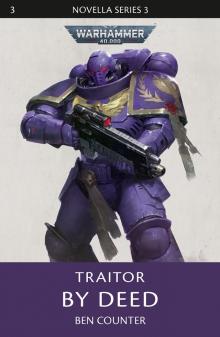 Traitor by Deed
Traitor by Deed Sacrifice
Sacrifice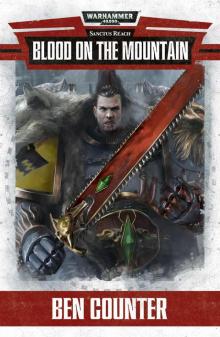 Blood on the Mountain
Blood on the Mountain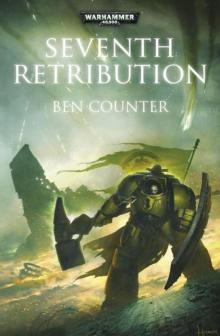 Seventh Retribution
Seventh Retribution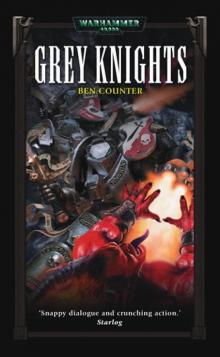 Grey Knights (Warhammer 40000)
Grey Knights (Warhammer 40000)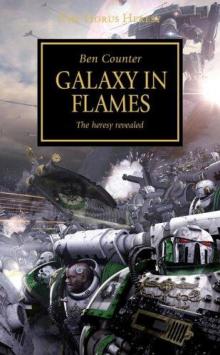 Galaxy in Flames
Galaxy in Flames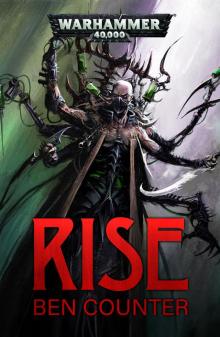 Rise – Ben Counter
Rise – Ben Counter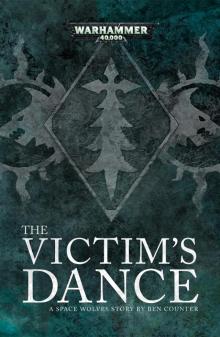 The Victim's Dance
The Victim's Dance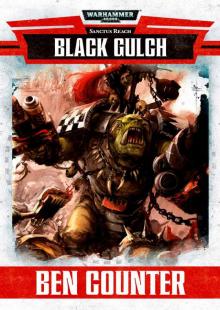 Black Gulch
Black Gulch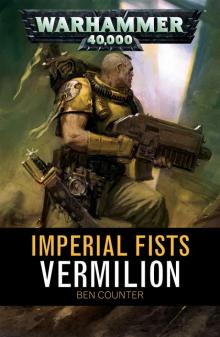 Vermilion
Vermilion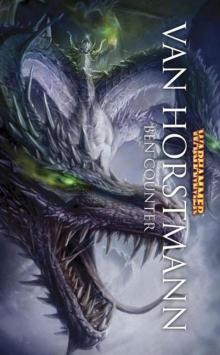 Van Horstmann
Van Horstmann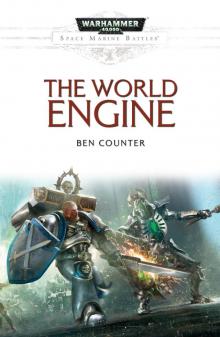 The World Engine
The World Engine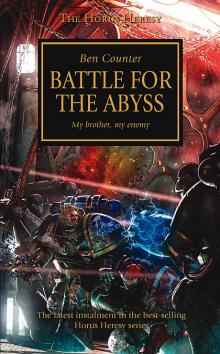 Battle for the Abyss
Battle for the Abyss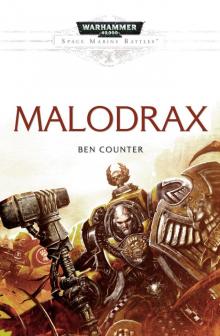 Malodrax
Malodrax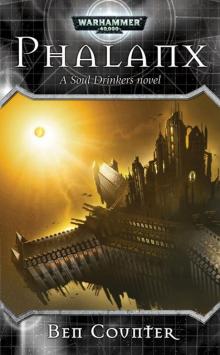 Soul Drinkers 06 - Phalanx
Soul Drinkers 06 - Phalanx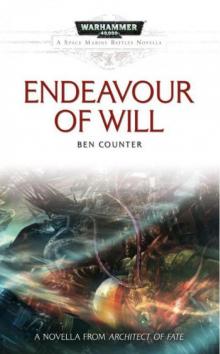 Endeavour of Will
Endeavour of Will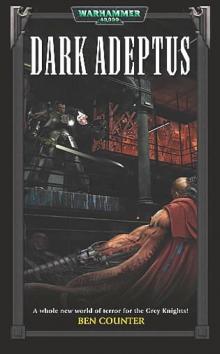 Dark Adeptus
Dark Adeptus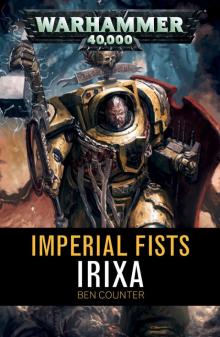 Irixa
Irixa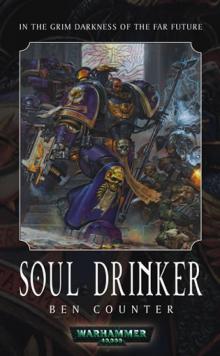 Soul Drinker
Soul Drinker